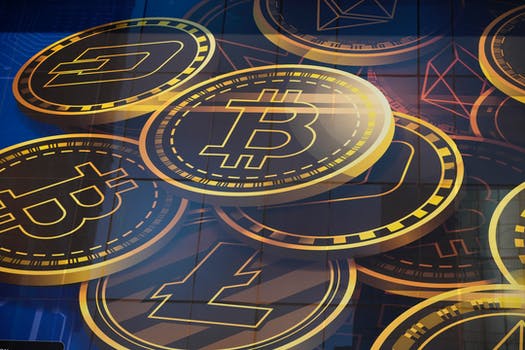Coinbase Expands Multi-Chain Support, Integrates Polygon (MATIC) Network for USDC Deposits
SOURCE: HTTPS://THECURRENCYANALYTICS.COM/
OCT 11, 2023
Cryptocurrency terms to know
SOURCE: STARTRIBUNE.COM
JUL 30, 2022

Cryptocurrency is an unregulated financial system heavily influenced by mathematical models. While a bank transaction involves depositing or withdrawing a set amount of a regulated currency such as dollars or euros, backed by governments with real assets, digital money is unregulated.
That means consumers need to do more research on their investments. Consumers will never have a physical coin or bill but instead have transactions electronically recorded.
To help understand this decentralized network of money exchanging, we've used a list of definitions provided by Coinsource, a company that operates Bitcoin ATMs across the U.S., including Minnesota.
Coin: Like U.S. currency, this is a digital asset that is created by an independent blockchain, usually a cryptocurrency company. Also called a token, the most popular is Bitcoin, with other examples being Ethereum or Binance.
Digital asset: An asset is created digitally with set parameters revolving around scarcity, transferability and exchangeability attributes. This helps establish the market value of your coins.
Blockchain: In its most basic terms, it's an encrypted digital ledger that records your cryptocurrency transactions. It keeps track of how much of a certain type of currency you have, how you have spent it and if your digital asset has gained or lost value.
Initial coin offering: An ICO in short form, this is a crowdfunding strategy for startups where those who contribute tokens for a specified return.
Mining: This is the verification process in which blocks are added to a blockchain. It basically is a series of computer computations and requires a data center.
Non-fungible token (NFT): A token with an inherent quality that cannot be exchanged for another token.
Stablecoin: A cryptocurrency that is pegged to a stable asset such as the U.S. dollar.
Whale: A whale is a significantly large investor in Bitcoin, or another asset.
LATEST NEWS
Augmented Reality
Hi-tech smart glasses connecting rural and remote aged care residents to clinicians
NOV 20, 2023
WHAT'S TRENDING


Data Science
5 Imaginative Data Science Projects That Can Make Your Portfolio Stand Out
OCT 05, 2022

SOURCE: HTTPS://THECURRENCYANALYTICS.COM/
OCT 11, 2023
SOURCE: HTTPS://FORKAST.NEWS/
SEP 25, 2023
SOURCE: WWW.BUSINESSTODAY.IN
AUG 11, 2023
SOURCE: HTTPS://COINTELEGRAPH.COM/
JUL 19, 2023
SOURCE: HTTPS://WWW.BUSINESS-STANDARD.COM
JUL 06, 2023